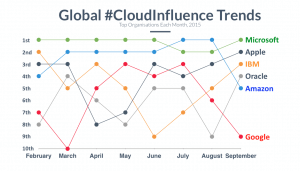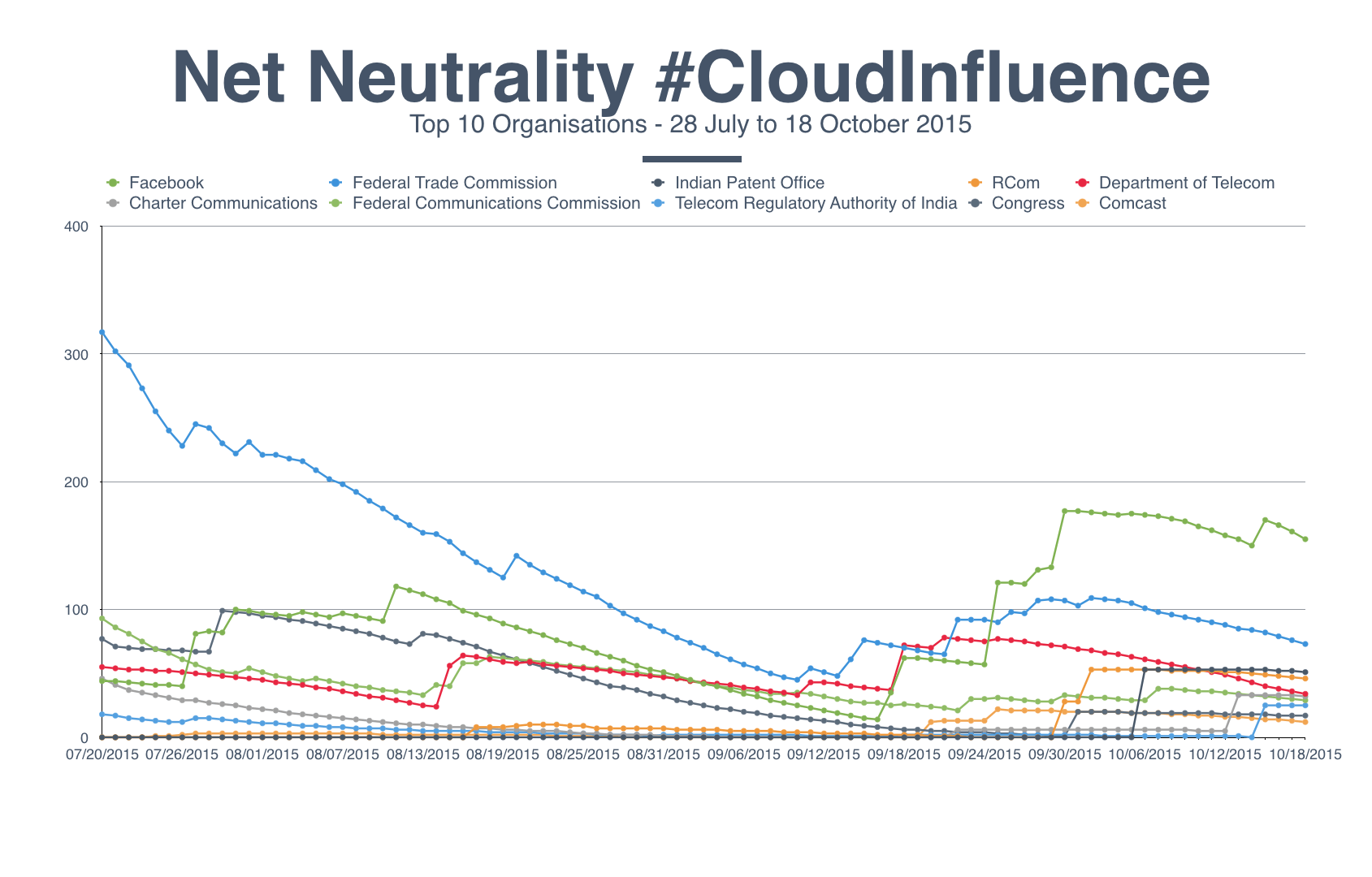Rule of Law: From Privacy to Net Neutrality – how perspectives vary between the EU and US
The Internet and the cloud both evolved organically, but as their impact and reach have increased, so have the efforts to regulate them. This has exposed a difference in regulatory perspective between the EU and US on a range of issues.
[easy-tweet tweet=”First there was the right to be forgotten, then there was Safe Harbour” user=”billmew @comparethecloud” usehashtags=”no”]
First there was the ‘right to be forgotten’ in which the EU imposed additional privacy regulations on Google, and then there was the recent EU ‘Safe Harbour’ ruling on transatlantic data sharing and privacy. In both these instances it was EU regulators breaking new regulatory ground, but in the next big issue on the horizon, everyone is looking at the Federal Communications Commission (FCC) in the US.
Previously firms like Netflix had begun paying Internet Service Providers (ISPs) like Comcast to ensure that Netflix customers would continue to enjoy streaming video over the service without having their data speed slowed. Net neutrality campaigners feared that blocking, throttling, or pay-for-priority fast lanes would create a tiered or ‘two-speed’ internet.

At the end of February, the FCC approved a 313-page order that would allow it to treat internet access like a public utility. The new net neutrality ruling did away with such paid prioritisation and make it illegal for ISPs to slow down internet speeds based on the site a customer is using, or charging internet companies to prioritise traffic that comes to them.
[easy-tweet tweet=”The FCC approved a 313-page order that would allow it to treat internet access like a public utility” via=”no” usehashtags=”no”]
The impact of such regulations isn’t always predictable. Supposedly it meant Internet-based services, particularly streaming services like Amazon Instant Video and Netflix that use huge amounts of data, would be spared prioritisation charges and therefore charge consumers less. However Netflix has increased prices and there is a fear that these streaming services will monopolise top content (such as sports) and charge a premium for it, just as cable and satellite firms have done in the past.
The fight for an open Internet is far from over, however. Cable and telecommunication companies say the order was an overreach by the FCC and that such rules should be created by Congress.
The fight for an open Internet is far from over
By mid-April, a handful of lawsuits had been filed against the FCC, seeking to overturn the net neutrality rules. The Cellular Telecommunications Industry Association (CTIA) filed one such suit; so did the National Cable and Telecommunications Association (NCTA) and the US Telecom and the American Cable Association.
Chief among the objections of the United Telecom Association (UTA) is that their members won’t invest as heavily in broadband infrastructure if they are forced to abide by the new regulations, contravening the FCC’s mandate to encourage investment. The FCC reclassified Internet providers under Title II of the Communications Act, making them common carriers subject to the same regulations as public utilities.
The UTA argues that the FCC’s prior light-touch approach deliberately induced hundreds of billions of dollars in investment, all of which has now been devalued. With the legal and regulatory arguments likely to continue for some time to come, we wanted to look at which advocates on either side of the argument were having most impact.
Currently the main centres of debate are in the US and in India. The advocates of net neutrality are very vocal and visible, and include business leaders such as Mark Zuckerberg and politicians like Jeb Bush and Megan Smith the US CTO, along with numerous campaigning tech journalists.
| Index | Name | Company | Position | |
| 1 | Mark Zuckerberg | Co-founder, Chairman and CEO | ||
| 2 | Jeb Bush | State of Florida | 43rd Governor | @JebBush |
| 3 | Jessica Smith | Business Insider Tech | Journalist | |
| 4 | Megan Smith | Office of Science and Technology Policy | United States Chief Technology Officer (CTO) | |
| 5 | Kevin Martin | VP Mobile and Global Access Policy | ||
| 6 | Ian Sherr | CNET News | Journalist | |
| 7 | John Oliver | Comedian | @iamjohnoliver | |
| 8 | Lance Whitney | CNET News | Journalist | @lancewhit |
| 9 | Tim Berners Lee | Internet Vissionary | @timbernerslee | |
| 10 | Vittorio Colao | Vodaphone | CEO |
The telcos are equally active, but far less visible as they are operating mainly behind the scenes with the CTIA, NCTA and UTA all lobbying the FCC as well as petitioning the courts. While the major telcos prefer to act collectively through these industry bodies rather then draw the fire of the net neutrality advocates by acting individually, but nevertheless some such as Comcast are visible in our findings.
The debate in India is lead by lawyer and Bharatiya Janata Party (BJP) politician Ravi Shankar Prasad.
the lobbying power of the large telcos should never be underestimated
On the face of it, the advocates of net neutrality would appear to have the upper hand, but the lobbying power of the large telcos should never be underestimated. The telcos understand that net neutrality is a point of principle for many and is also unlikely to be something that they can reverse for the public Internet. But there is profit to be made providing private networks that bypass the Internet, and they want to ensure that net neutrality doesn’t impact their ability to serve this parallel market.
In most countries you have postal services for letters with a common delivery system for all and then a more competitive market for parcel delivery. Letters are covered by regulatory controls to ensure a universal service – a stamp is enough to send a letter to any address. All letters are treated and priced equally, whether delivered to an easy to serve destination such as a block of flats in a city, or a more remote one, such as a rural farmhouse. Parcel couriers tend have variable pricing and delivery options based on priority, size or weight and destination (as well as volume discounts for large clients).
The advocates of net neutrality want to retain this kind of common universal service for the Internet so that we don’t have first and second class delivery that would discriminate between types of traffic over the internet. At the same time the telcos realise that they may not be allowed to offer differentiated services over the public internet or to consumers’ homes (at least at this time – it may follow eventually), however they want to be able to compete for the lucrative equivalent of the parcel service – the private data networks that bypass the public internet and serve large corporate clients.
[easy-tweet tweet=”Corporate clients have invested heavily in new cloud environments that depend on secure and reliable connectivity” via=”no” usehashtags=”no”]
Corporate clients have invested heavily in new cloud environments that depend on secure and reliable connectivity. The pubic Internet is increasingly clogged by high bandwidth video from the likes of Netflix and rarely as secure or reliable as companies need. There is therefore already a thriving private connectivity market. Firms like GTT have a global network with hundreds of Points Of Presence (POPs) connecting corporate data centres and cloud providers internationally. The telcos want a slice of this pie. The question will be what counts as a letter or a parcel and when is a service tiered and when is it separate. The answers to these questions will dictate how the Internet evolves and how much of it becomes regulated.
Bill is a tech industry veteran and experienced corporate marketing and communications professional with over 20 years spent working in blue chip organisations mostly in pan-European and global communications roles. He is also a regular commentator on #Cloud, #SocialSelling and #InfluencerMarketing, as well as a dad with a passion for technology, economics, politics & Arsenal FC.


